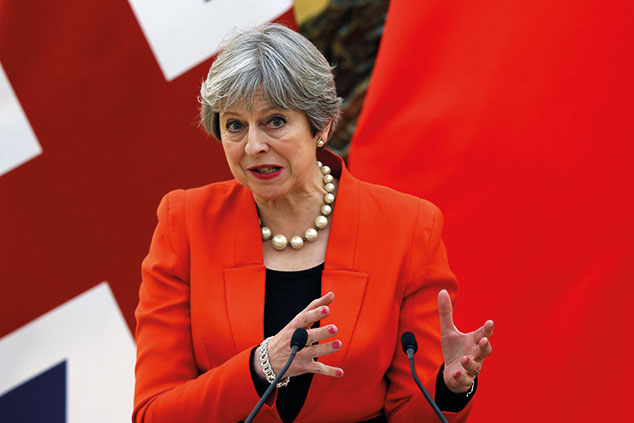
MPs “sent a powerful signal of their opposition to the UK crashing out of the EU without an agreement” on Tuesday by backing an amendment to the government’s finance bill that ties ministers’ hands if they pursue a no-deal Brexit, says James Blitz in the Financial Times. The amendment restricts the government’s powers to make changes to tax law in the event of a no-deal Brexit. The amendment was opposed by the government, but about 20 Conservative MPs rebelled and backed it.
The Treasury is probably correct that the bill only makes “fairly minor” changes and “won’t stop no deal from happening, or the government continuing to prepare for it”, says James Forsyth in The Spectator. MPs who want to stop a no-deal Brexit will have to do more than pass amendments. Ultimately, they would have to be prepared to bring down the government. What the vote does show, however, is that there is a Commons majority for frustrating moves towards a no-deal Brexit.
What was achieved?
The whole exercise was pointless, says Daniel Finkelstein in The Times. “I have never participated in, indeed never witnessed, anything quite as fatuous or fruitless as voting to insist that we won’t leave the European Union without a deal.” The only way to prevent a no-deal exit is to actually make a deal with Brussels. The government has made such a deal and wants to get it passed.
So if the rebels are genuinely set on stopping a no-deal Brexit, they should accept the deal on offer. But with Theresa May’s deal facing defeat, and no alternatives on the table, “the chance of us accidentally ending up with no deal are very large”. This means “we should be thinking harder” about how to manage such a scenario, yet all the amendment does it make it harder to prepare for such an outcome. That is “irresponsible”.
Nonsense, says Yvette Cooper, the Labour MP who proposed the amendment, in The Guardian. Some people argue that the government needs “the imminent threat of no deal” to persuade people to back the withdrawal agreement. But “there is no majority for the deal either in parliament or the country – and this is an irresponsible way to try to resolve something with such lasting consequences”.
Given the likely impact of a no-deal exit on the economy, it’s clear “the country can’t afford to play Brexit chicken and wait to see who blinks first”. So it’s only logical to “ensure that parliament has the powers to prevent no deal if it reaches that point”.
Could Brexit be delayed?
The government’s latest defeat is a reminder that “the time-horizons are getting dangerously, indeed perhaps impossibly short”, says Peter Foster in The Daily Telegraph. An extension of the Article 50 deadline looks increasingly inevitable. Any postponement would need the agreement of all member states, but “it would be very hard politically for EU leaders to be seen to ‘drive the bus off the cliff’ when the UK was asking for more time”.
Another option would be for the UK unilaterally to rescind Article 50. That may seem a distant prospect given the state of UK politics, “but if neither side backs down and the EU rejects an extension request, it surely cannot be discounted”.